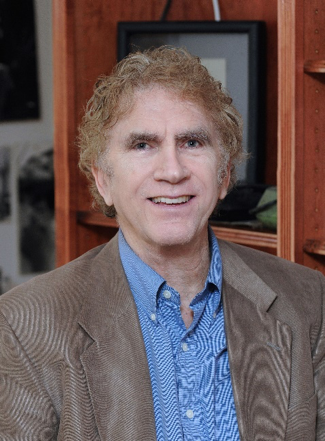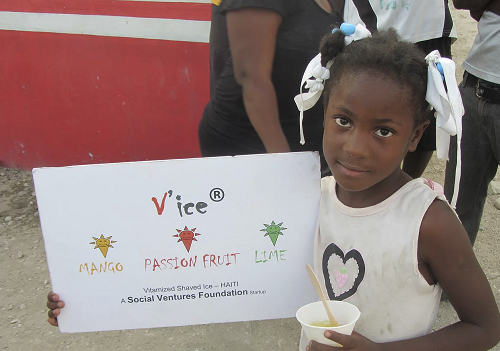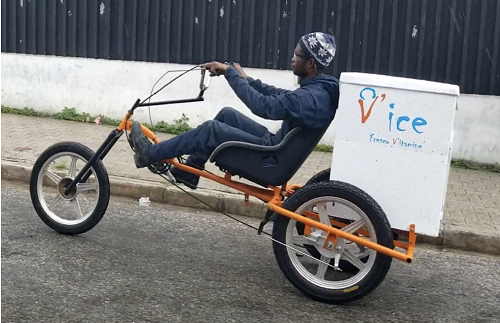Portsmouth, NH-based nonprofit Social Ventures Foundation (SVF) facilitates the building of sustainable businesses that create jobs and lift the livelihoods of the poor. SEE Change recently sat down with founder and executive director Marc Blumenthal to discuss SVF’s unique mission and focus, its particular emphasis on Haiti and how they’re working to change the paradigm of poverty reduction.
Tell us about SVF, its mission and how it got started
During my travels to many developing nations over the last 20 years, I witnessed a tremendous amount of poverty. I could never fathom the benefits for a society to exclude people from the free enterprise system. I knew that if they were included, all ships would rise. Since I spent most of my life on education and technology startups, I decided to apply my grey matter and focus on identifying, promoting and demonstrating startups focused on employing the poor to deliver sustainable social impact to the poor at the “Bottom of the Pyramid” (BoP).
So, two years ago, I started the nonprofit Social Ventures Foundation to facilitate this mission. The Foundation’s objectives are to identify, promote and develop sustainable businesses which have developed products and services that not only lift the livelihoods of the poor but also hire the poor to deliver those products.
Why does SVF focus on the “Bottom of the Pyramid” and the poorest of populations?
The “Bottom of the Pyramid” represents populations desperate for jobs and prone to a variety of disruptive societal problems including conflict, drugs and crime. Take for example America’s current border crisis – it deals with “Bottom of the Pyramid” populations from Guatemala, Honduras, El Salvador, Haiti, and other poor nations fleeing their homelands in search of jobs and security. The Foundation’s focus on this population stems from our desire to develop sustainable and scalable businesses that will employ the poor to lift the livelihoods of the poor in these nations. This will help to eliminate the migrations – which is a last resort action.
Tell us about the “Berkshire Hathaway investment model” for ending poverty
The Foundation’s EndPoverty Fund (which is under formation) meets an existing vacuum in funding sustainable and scalable business solutions that provide social impact for the poor and employ the poor to deliver it. There are a very limited number of funding mechanisms that will underwrite these types of businesses given the risk and low return on investment (ROI). Government agencies, private equity funds and Foundations have extremely limited capital. The EndPoverty Fund’s Berkshire Hathaway model will go public and attract investments from the global public as well as pension funds, religious institutions and others, as an alternative to charitable giving that is focused on poverty reduction.
You’ve focused your attention on Haiti with your V’ice Haiti social enterprise. Tell us why Haiti and how you plan on investing in the country
We focused on Haiti because it’s the poorest country in the Americas. V’ice Haiti is the Foundation’s poster child for the EndPoverty Fund. It is focused on demonstrating how a Micro-Franchising business model can employ the poor to sustainably lift the livelihoods of the poor. V’ice is meeting a major health crisis in Haiti: vitamin and protein deficiency. Our innovative solution is “V’ice”, a shaved ice cone with a vitaminized topping and “V’Bar” a protein bar made from locally sourced cornflakes and peanut butter. Both products supplement the vitamin deficiency needs as defined by the Haitian Department of Health and U.S. AID. The Foundation has accomplished its proof of concept and is now scaling V’ice Haiti. We are seeking private investment capital to facilitate scaling in Haiti. Once we have proven our ability to sustainably scale, we will raise additional investment capital to replicate V’ice in other developing nations.
Is SVF looking for investors? If so, what type of investors are you interested in and what will the funds be used for?
We are looking for 5 “anchor” investors for the EndPoverty Fund with a minimal contribution of $5 to $10 million each to attract additional investors to help accumulate a $50 million plus fund. These funds will be used to buy up a controlling interest in 8 to 12 sustainable startup ventures that are looking to scale or are already scaling. Only ventures that meet the Foundation’s investment criteria – focusing on delivering high impact sustainable and scalable solutions to health, housing, education, agriculture, energy, sanitation and environment – will be supported.
The Fund is particularly interested in Micro-Franchising business models which recognize that the primary employment of the poor at the Bottom of the Pyramid is that of self-employment not employment. The Foundation focus is on investments that will raise the livelihoods of the poor and reward the poor who “make” the business with long-term equity. This combination of higher wages and a “piece of the rock” is a “bottom up” approach to raising livelihoods out of extreme poverty.
What are SVF’s future goals?
We have four goals: First to expand our pipelines to source startups and ventures that focus on sustainably lifting the livelihoods of the poor at the Bottom of the Pyramid, including startups originated by social impact programs at universities worldwide. Second, to promote these enterprises through our newsletter, “PovertyWatch” and ask the best social ventures to make case presentations at our annual virtual “EndPoverty Summit” which will be held again this November. Third to consider the most outstanding enterprises for possible investment by the EndPoverty Fund, and fourth to facilitate the development of Micro-Franchise startups that meet the unmet challenges of the poverty reduction space.
Any lessons learned from your work over the years in this space?
Perhaps the most important lessons we have learned in the “end poverty space” is that a large percentage of the International Development Industry is focused on self-preservation and not on sustainable and scalable solutions to poverty reduction. As previously mentioned, 90% of the jobs for the poor are those of self-employment not employment – over 80% of the International Development workforce has never been self-employed. There is a huge disconnect here that must be addressed.
What advice would you offer those looking to fund their own startups in this space?
They must be equipped with two key traits: passion and persistence. They should look to strategic business partners who share a “wheelhouse” with their mission given that foundations are essentially closed ecosystems with “we do not accept unsolicited proposal” signs. Government agencies are not much better given that they still speak “ID” (“International Development”) a language requiring a degree in International Development. Those who don’t speak this language or have not been employed by an International Development Agency in the Washington, DC Beltway should probably not waste their time.
Marc Blumenthal has a background in investment management, entrepreneurship, education and technology innovation and launched his first startup, the American Book Club, at 19 at the University of Pennsylvania. His other startups were in the fields of medical devices, Plasma Fusion and aerospace. He can be reached at marc@socialventuresfoundation.org




Excellent
great